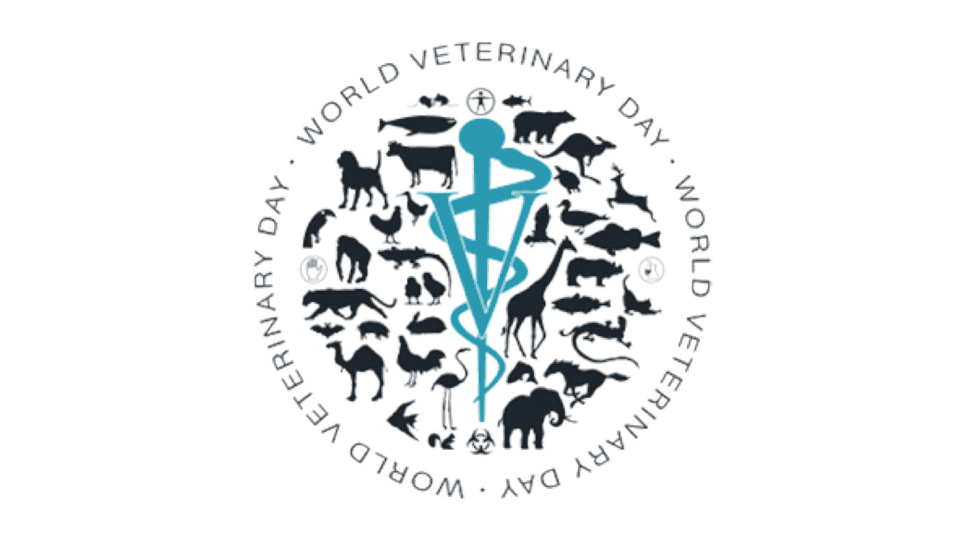On account of World Veterinary Day being celebrated on Apr. 29, here we publish an article on veterinary profession by Dr. C.S. Arun, a post-graduate Veterinarian practicing small animal medicine in Mysuru since twenty-two years. Author of many books and scientific articles about animal health care, he has been recognised as “Best Veterinarian” by Karnataka Veterinary Association in the year 2013
By Dr. C.S. Arun
The last Saturday of April every year is celebrated as World Veterinary Day to mark the contributions of the Veterinarians to global health.
A Veterinarian is a doctor who cures the ailments of the animals. Apart from treatment, the Vet is also responsible for improving the production of the animals thereby contributing towards eradication of hunger and malnutrition. This noble profession is existent since ages as the animals always formed a part and parcel of human society.
Animals served as crucial experimental models in development of human medicine. The present concept of “one-health” duly acknowledges the role of Veterinarians in protecting world health.
World Veterinary Day theme for this year is “Antimicrobial resistance-from awareness to action.” Antimicrobials are the main tools of human and animal medicine in promoting global health which is a key component of animal welfare, food security and safety. Safeguarding the efficacy of these life-saving medications, as well as their availability and effectiveness for both human and veterinary use, is essential to preserve our future. However, overuse and misuse of these drugs has dramatically accelerated the emergence of resistance to antimicrobials.
Veterinary services have a key part to play in the fight against antimicrobial resistance through their role in regulating and supervising the use of antimicrobials, offering professional advice to farmers and animal owners and collaborating with the human health sector. To continue to progress in disease control management and in improving animal welfare, veterinarians need to encourage and achieve a sustainable change in behaviours towards a responsible and prudent antimicrobial use.
I am in this profession since three decades and hopefully will continue to serve for two more decades. Why did I choose to be a Vet? I should confess here that it is not due to extreme love towards animals but because of the lure of a Government job which was a mirage in those days. All my seniors used to get placed in the Department immediately after graduation. Job prospects are almost the same today or even better because of increased responsibilities thrust on the animal doctors. Though the number of colleges in the State has increased to four, the student intake is not more than 280. As there are no private colleges, there is no menace of donation, capitation fees etc. Good, isn’t it?
After graduation, a Veterinarian may work in Animal Husbandry Department, KMF, Private Dairies, Sheep Board, Poultry Companies, Pharmaceuticals, Diagnostic Labs, Insurance Cos., Zoos, Colleges, Research Institutes, Army, Civil Services, Private Hospitals, NGOs, etc. There are ample opportunities to go abroad for study or work.
Life of veterinarians is not a bed of roses. Challenges faced by us are plenty. Since we deal with dumb animals, most of the times we will be clueless about the history. Moreover, most of our patients are non-co-operative. They may kick, butt, bite, scratch or even kill us (Yes, it has happened!). Always, there is a risk of communicable diseases from animals. Of course, we are trained to handle such situations.
The real challenge is to handle the clients, the animal owners, who are very difficult to be satisfied. Coming from diverse backgrounds, they need a lot of education. Obviously, a Vet with good inter-personal skills will earn a reputation fast. Also, a Vet should be at service always, that is, 24/7/365. So, availability and communication skills top the list of client expectations from a Vet. Budding veterinarians have a lesson to learn here!
As a canine practitioner, I am blessed in many ways like fairly understanding clients, good workplace, good income and regular working hours. My friends in large animal practice, especially in rural areas, work in unfavourable conditions with scanty resources with poor recognition. But the satisfaction they get when a sick animal, the backbone of a poor farmer, gets well through their treatment is immense. It cannot be replaced by any rewards. Hats off to them!
A lot has to be done in our field. Hospitals need to be better equipped. Round-the-clock health care, ambulance and in-patient facilities are needed everywhere. A nice holiday-home is required for boarding the pets. Stray animals need a place where they get a compassionate care. Old-age homes and a separate graveyard are very much essential.
Many zoonotic diseases are flaring up which need a solid treatment strategy backed by research. All these need huge financial inputs. While the Government funds are mainly for large animals, poultry sector is dominated by private players. Pet field is serviced by private practitioners. Of late, business conglomerates are showing interest in developing world-class facilities for pet health care which is happening in metros. Overall, there is a huge potential for growth in veterinary field. A Vet should make use of these opportunities with open-mindedness, hard work, dedication, continuous upgradation of knowledge and most importantly compassion towards the dumb and hapless creatures.








Recent Comments